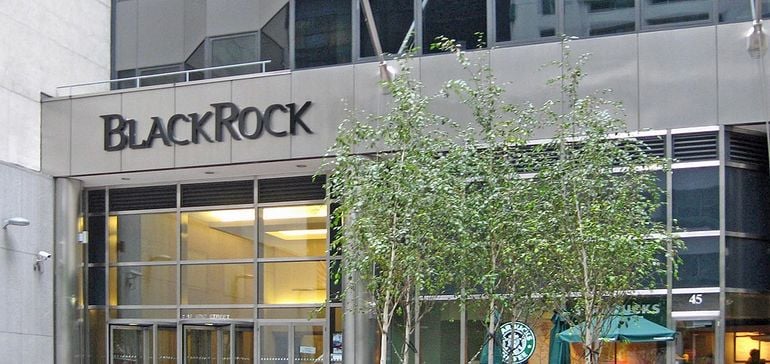As the new year begins, it’s natural to look at the environmental, social and governance policy debate and anticipate how the players would escalate their arguments.
Last year, 19 Republican attorneys general wrote perennial ESG punching bag BlackRock with concerns over the asset manager’s strategy.
Several of the same AGs, two months later, launched investigations into whether the nation’s six largest banks, through their ESG practices, were blocking credit to oil companies.
A handful of states — West Virginia, Texas and Kentucky come to mind — have either barred financial institutions they deem hostile toward fossil fuels from accessing new state contracts — or have asked state pension funds to divest their holdings from such companies.
It would be business-as-usual, perhaps, if more states were to do the same. But, strategically speaking, how is that taking the fight up a notch? It seems a group of 21 Republican attorneys general have found a way to do so: Go after the companies banks hire to influence shareholder voting.
The 21 AGs wrote Institutional Shareholder Services and Glass Lewis on Tuesday, demanding the proxy advisers stop making shareholder voting recommendations — particularly on climate and board diversity — that the officials say contradict the advisers’ duty to get investors the best possible financial results.
The AGs argue that ISS, for one, has been pushing the finance industry to “play a central and catalytic role in the global transition to a low-carbon economy” because governments that have agreed to work toward net-zero emissions by 2050 haven’t codified that into law.
“The technology required to get to net zero by 2050 does not exist,” the attorneys general wrote, citing a 2021 International Energy Agency report. Reaching net zero by 2050 would mean an 8% decrease in energy demand while the global economy grows to twice its size, they noted. And energy efficiency must improve by an average of 4% per year through 2030 — triple the average rate from the past two decades, according to IEA figures.
“In other words, it is far from certain that any of this will occur,” the AGs wrote. “A rational company acting in the best interests of its shareholders would not voluntarily incur the massive expense [of a net-zero effort unless] in response to a government-imposed mandate.”
Wait, Taiwan?
Further, the AGs assert that ISS and Glass Lewis have a “limited ability” to affect emissions from China, which outpace those of the U.S., European Union and Japan combined, according to The New York Times. Adhering to net zero, the AGs wrote, would weaken the U.S. economy in comparison and leave the country reliant on China for “clean energy metals.” The AGs argue China could use that trade money — and the gains China has made by not adhering to net zero — to fund an invasion of Taiwan.
The AGs also argue ISS and Glass Lewis have a conflict of interest regarding ESG. “Each of you offers a substantial number of services related to ESG investing,” the AGs wrote. “The value of these services would be undermined if you were to admit … that ESG factors are not material to a firm’s financial performance.”
On diversity, the AGs said ISS and Glass Lewis “pledged to recommend votes against certain directors on boards that you view as having insufficient racial, ethnic, or sex-based diversity under arbitrary quotas.” The AGs question whether the quotas materially increase the economic value of a company, and allege that by encouraging adherence to quotas, ISS and Glass Lewis are pushing companies to violate state anti-discrimination laws.
The attorneys general are asking ISS and Glass Lewis to justify their positions on net zero, board diversity, and yes, Taiwan by Jan. 31.
Not always a lock
However, companies have shown that just because proxy advisers recommend something — even when a majority of shareholders vote that way — it doesn’t mean it will become policy. Last year, ISS and Glass Lewis recommended JPMorgan Chase shareholders reject a one-time $52 million pay incentive to CEO Jamie Dimon. It garnered 31% support from shareholders. Yet it stood.
In the same vein, a proposal doesn’t have to get a majority vote to propel a bank to action. Citi in 2021 agreed to undergo a racial-equity audit after a resolution filed by SOC Investment Group received 38% support.
The escalation, for attorneys general, may be an attempt at a lawsuit. If ISS or Glass Lewis’ responses prop up an argument that board diversity quotas run afoul of state laws, the threat of legal action could work. Coinbase, for example, scrapped a high-yield product ahead of a scheduled launch in 2021, weeks after the Securities and Exchange Commission threatened to sue.
‘Personal’ attacks
A December hearing in Texas, featuring testimony from BlackRock and State Street executives, gave the air of a legal proceeding. Dalia Blass, BlackRock’s head of external affairs, sought to assure the Texas Senate Committee on State Affairs that the asset manager it doesn’t discriminate against energy companies.
“We have one bias: to get the best risk-adjusted returns for our clients,” she said.
The panel’s chairman, Bryan Hughes, equated the fight over energy financing to no less than a matter of “national security.”
“When there’s no funding for energy projects, energy projects don’t get done, energy costs go up, jobs go away and the cost of everything we buy goes up,” he said. “This is real. This is family security. This is national security.”
Bringing family into the debate may personalize it more than money. BlackRock CEO Larry Fink indicated as much this week in an interview with Bloomberg.
“For the first time in my professional career, attacks are now personal,” he said. “It’s not business anymore. … They’re trying to demonize the issues.”
Fink called the narrative “ugly,” and said his recent annual letters have focused on a transition that emphasizes working with energy companies rather than against them. Fink said this year’s letter, due in March, will center on a concept of hope.
“BlackRock is a firm that tries to sell hope because why would anybody put something into a 30-year obligation unless you believe something is better in 30 years?” Fink said.
Still, hope isn’t always enough for climate activists. A study released this week by the French nonprofit Reclaim Finance blasted Citi and Bank of America — each a member of the Net Zero Banking Alliance — for lending or underwriting roughly $53 billion since April 2021 to oil, gas and coal companies whose operations are growing. Reclaim Finance said not enough data was available to distinguish how much of that went toward new fossil-fuel projects. Rather, the report highlights outflows to companies with expansion plans.



